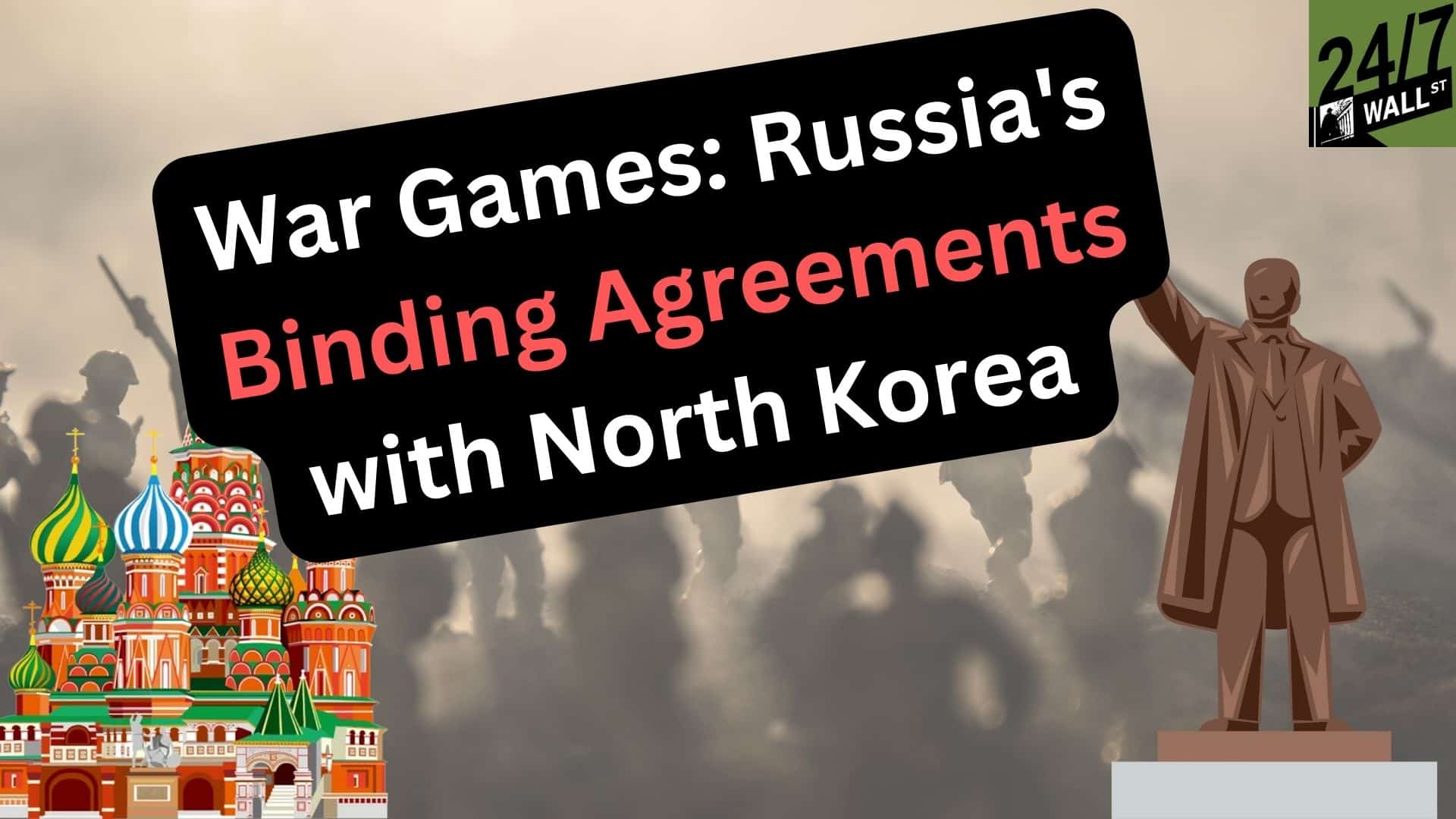
Key Points
- North Korea and Russia have a security pact
- Russia has a lot of discretion on how to interpret and intervene
- The relationship is complex
- Also: The Next Nvidia Is Ready To Soar
Summary:
Austin Smith and Michael Muir discuss Russia’s obligations to North Korea in the event of a conflict with South Korea. The security pact between North Korea and Russia includes stringent conditions for Russian intervention, such as South Korean or American troops crossing the DMZ. Furthermore, North Korea must adhere to Article 51 of the UN Charter, refraining from using nuclear, chemical, or biological weapons. This allows Russia significant discretion in choosing whether to intervene. The conversation highlights the complexities of a potential conflict in the Korean peninsula, including the role of China and the challenging terrain that complicates military operations.
Transcript:
Sort of third parties, if you will.
So the security pact between North Korea and Russia.
I looked into the text a little bit more and by going by the exact wording of the language is really interesting because there are some very strong conditions applied to the situation that would have Russia intervening in a conflict between North and South Korea.
Um so it would have to be an invasion so North Korean troops would have to cross into the excuse me South Korean troops would an American let’s let’s face it any conflict is going to involve the United States that’s not even debatable but if allied forces cross in cross over the DMZ then that is a scenario Russia would get involved.
It’s extremely unlikely I should point that out.
Um but the other aspect of that is, and this may sound very strange, but the way North Korea acts in defending itself is also really important.
So the condition is that North Korea has to adhere to Article 51 of the UN Charter, which basically means they can’t use nuclear weapons, they can’t use ballistic missiles, they can’t use chemical and biological weapons.
Now, that is going to sound very strange, because we would imagine that North Korea and Russia wouldn’t have too much regard for international law.
I was going to say that that’s an interesting boundary to be placed on them by Russia, who in many capacities appears to be pushing up against the edges of what the UN and NATO and other allies are comfortable with in warfare.
But please continue.
Yeah, so I think that really gives Moscow a huge amount of wiggle room and discretion in getting involved in any potential conflict.
So if North Korea was the aggressor, Russia would have no part in it.
But there’s another aspect to this.
If allied forces did cross over the DMZ, China would get involved.
They have a security pact with North Korea, strictly defensive in nature.
So that is why I think that if things got out of hand and there was another Korean conflict, there’s a good chance that South Korea and the United States just simply wouldn’t go over the DMZ and they would try to win it indirectly, which, as I’ve said, is very difficult to do so.
So in a potential conflict, the Allied forces would have complete air superiority, no question whatsoever.
Same with the Navy.
Those are non-factors.
But the sheer number of troops, sheer number of artillery, and then the gigantic risks in invading.
And of course, terrain is not conducive to armoured warfare.
You know, tanks don’t do terribly well in mountains.
I don’t think that’s a terribly startling revelation to make.
You know, it was just It’s funny how technology has advanced so much in the last 80 years, but the same problems that were present in the 1950s are still present today.
It’s just not an easy place to conduct maneuver warfare.
And in many ways, I believe you’ve discussed in the past that Taiwan actually resembles that.
It’s an extremely mountainous region and an invasion is not as straightforward as it may seem.
If you look at the numbers in a spreadsheet, it doesn’t give you a full appreciation for the fact that this terrain is extremely challenging to invade.
And as we discussed previously, you ultimately need boots on the ground to hold a population.
You can attack from the air or the sea, but you can’t truly control without people on the ground.
The mountainous terrain and the lack of coves to land in make that challenging.
And it looks like it’s the same in North Korea.
So let’s
100 Million Americans Are Missing This Crucial Retirement Tool
The thought of burdening your family with a financial disaster is most Americans’ nightmare. However, recent studies show that over 100 million Americans still don’t have proper life insurance in the event they pass away.
Life insurance can bring peace of mind – ensuring your loved ones are safeguarded against unforeseen expenses and debts. With premiums often lower than expected and a variety of plans tailored to different life stages and health conditions, securing a policy is more accessible than ever.
A quick, no-obligation quote can provide valuable insight into what’s available and what might best suit your family’s needs. Life insurance is a simple step you can take today to help secure peace of mind for your loved ones tomorrow.
Click here to learn how to get a quote in just a few minutes.
Thank you for reading! Have some feedback for us?
Contact the 24/7 Wall St. editorial team.





